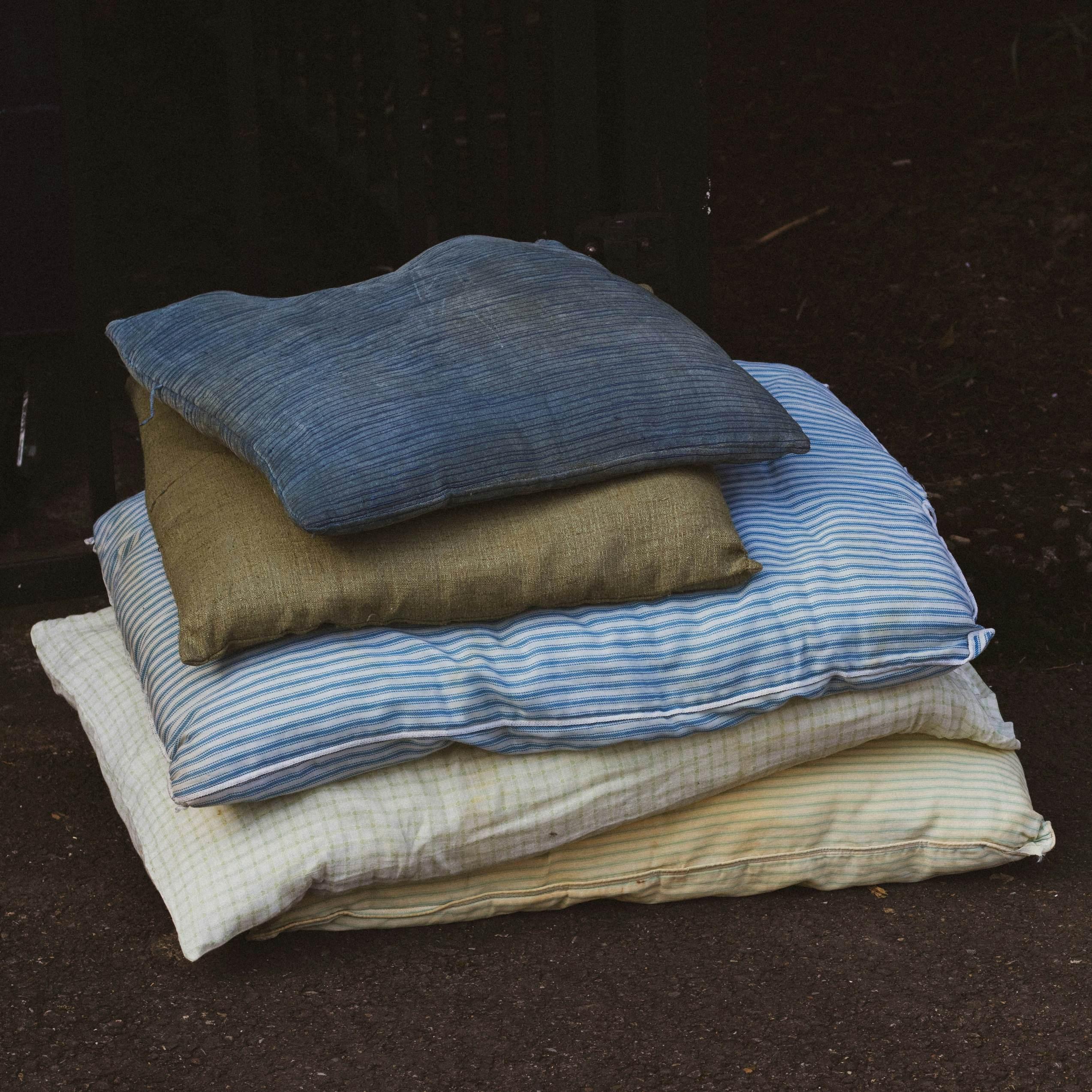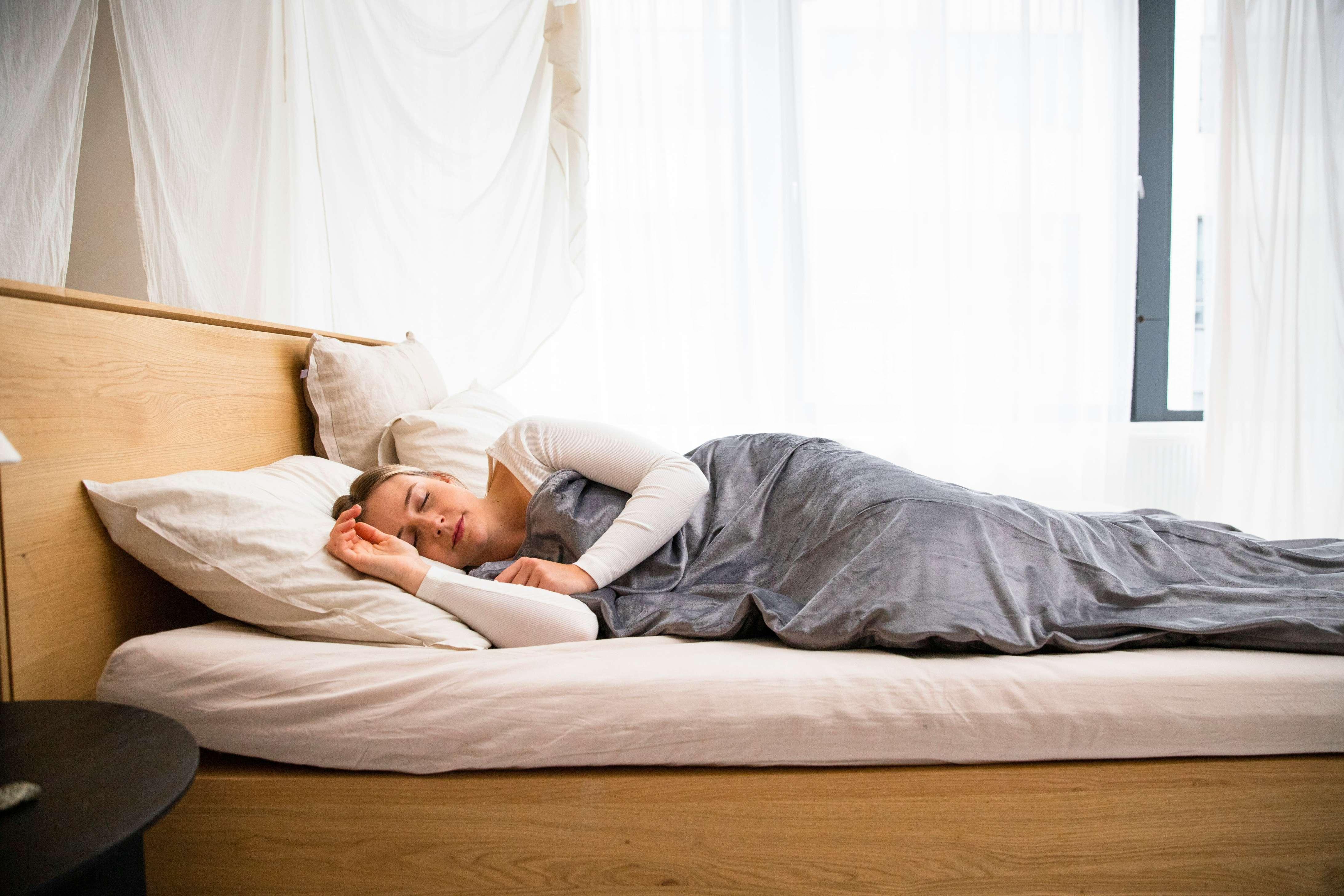Why Do My Pillows Turn Yellow? An Eco-Friendly Guide To Keeping Your Pillows Clean
There are planet-friendly ways to salvage your yellowed pillows.
Published Dec. 30 2024, 3:34 p.m. ET
Those of us who sweat buckets throughout the night know the pain of seeing our pillows turn yellow too frequently — and the joys that cooling sheets and pillows bring. Many allergists advise that your well-being could be harmed by continuing to sleep on yellowed pillows.
If you are trying to live a lifestyle that generates as little waste as possible, you may be interested to know that it is possible to clean your yellowed pillows with materials that are safer for you — and the planet.
Keep reading below to learn why your pillows are turning yellow and what you can do about it to keep your bedtime hygiene as clean as possible and allergies at bay.
Why do pillows turn yellow?
Do you use pillows without pillowcases? Chances are, as the U.K.-based Vision Linens explains, sleeping without a pillowcase could contribute to why your pillows are turning yellow prematurely.
If you shower before bed, but your hair is still wet when it touches the pillow, Vision Linens notes that this behavior could accelerate the yellowing of your pillows, too.
According to Mattress Clarity, sweating is thought to be one of the main culprits of yellowed pillows.
Other reasons you may be unintentionally contributing to the yellowing of your pillows, per Mattress Clarity, include:
- drooling at night, perhaps due to allergies;
- the oiliness of your face and hair seeping into your pillow;
- creams and body care products used during your nighttime routine transferring to your pillow.
Are yellow pillows bad?
Yes, yellow pillows can be bad for your health, experts say. According to USA Today, your yellowed pillow may be contributing to poor respiratory and skin health, as well as possibly affecting your sleep quality.
“These old yellow stinky pillows, while there is some type of emotional attachment to them, are exposing you to allergens and creating a breeding ground for mold,” pediatric allergist Dr. Zachary Rubin tells USA Today. “Plus, as these pillows wear off over time, they don't give you the kind of neck support that you need.”
For those with eczema and other skin conditions, a yellowed pillow could be contributing to, or worsening these conditions: "Dust mites thrive in humidity, so you're essentially sleeping with a major allergen," Dr. Rubin added.
Because dust mites are likely embedded in your yellowed pillows, it's possible that sleeping on them means you are breathing in the proteins from the urine or excrement of dust mites.
How to clean pillows that are yellow:
If you erroneously believed throwing away yellow pillows was your only option, you are certainly not alone. Thankfully, there are ways to salvage products they would have otherwise thrown out — like yellowed pillows.
As the Sleep Foundation explains, you should always read the instructions on your pillow first to ensure that you are washing your pillows properly. You can first try spot-cleaning the yellowed areas with a non-toxic soap.
Other experts say that adding baking soda and distilled vinegar to your wash cycle can aid in the whitening process. As Popsugar notes, relying on the cleaning power of vinegar and the whitening prowess of hydrogen peroxide before the wash cycle can save your pillows.

